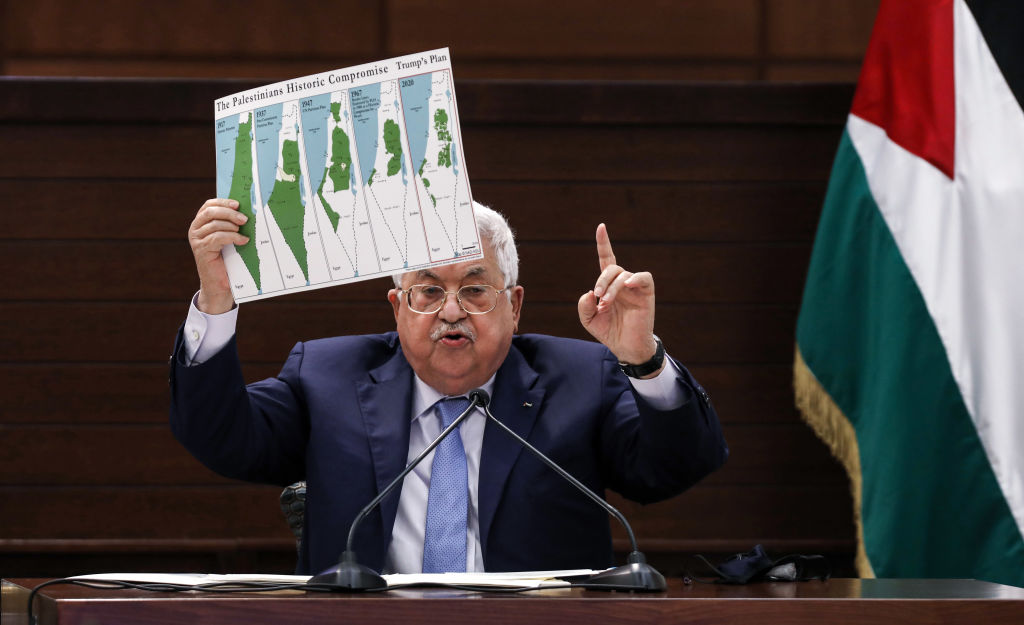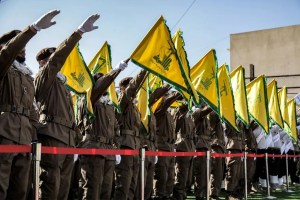Last week, the irony that stalks the Middle East found a new expression: while Israel has been playing out an almost comical surfeit of democracy, staging four elections in two years, the Palestinian Authority, which has refused to give voters a say since 2006, has shelved another election.
Mahmoud Abbas, 85, is currently enjoying the 16th year of his supposedly four-year term as Palestinian president. (Would it be too cheap a shot to wonder how the world would react if Netanyahu behaved like that?) When he announced that a poll would finally be held this month, seasoned observers laid bets that it would never happen. After all, having been trounced by Hamas in 2006 — leading to a brutal civil war and the loss of Gaza to the terror group — staging a rematch would be the equivalent of a sheep arranging to celebrate Eid. As a spokesman for Mohammad Dahlan, a presidential challenger, put it: ‘Only those who are afraid of the results don’t want elections.’
Sure enough, on Friday, amid protests on both the West Bank and in Gaza, the elections were all but canceled again. But the move was orchestrated to produce a big win of a different sort. For one thing, the Biden administration had been so impressed by the Palestinian Authority’s democratic intentions that it already reopened the funding taps that President Trump had tightened in protest against its corruption, antisemitism and incitement to violence. American taxpayers’ dollars are now flowing once again into the coffers of the UNRWA, not to mention aid earmarked for COVID response programs, ‘peace-building’ and other initiatives.
As a bonus, Ramallah was able to successfully pin its own democratic failures on Israel, accusing it of blocking campaigning and voting in East Jerusalem. Never mind that Israel denied this, with a statement from the foreign ministry, saying: ‘The elections in the Palestinian Authority are an internal Palestinian issue, and Israel has no intention of intervening in them nor preventing them’. Cue British foreign secretary Dominic Raab tweeting a picture of himself exchanging an elbow-bump with the Palestinian foreign minister Riyad al-Maliki, with the message: ‘Palestinian elections must be credible & inclusive, with Palestinians allowed to vote in East Jerusalem’. The optics were complete.
Conveniently obscured by the image of big, bad Israel, a jihadi group was to be on the ballot paper. Hamas, as an offshoot of the Muslim Brotherhood, is willing to partake in elections in order to ultimately subvert democracy, unlike groups like Isis, which favor a less, shall we say, subtle approach. We’ve been there before: a Hamas electoral victory in 2006 led to factional bloodletting and the wholesale loss of Gaza to the terrorists. Fifteen years later, Mr Abbas is once again trailing in the polls, his party as weak and divided as Hamas is strong and united.
The solution to all this should be obvious. Hamas may command popular support, but to hand it the keys to the castle is suicide. It is absurd to allow an anti-democratic terror group — known for targeting civilians with suicide bombs and rockets, plotting the abduction of soldiers using terror tunnels and dragging the bodies of suspected collaborators from motorcycles through the streets — to stand in a national election. If any political party wishes to appeal for the legitimate votes of the Palestinian people, it should be required to sign up to the three Quartet Principles: renouncing violence; recognizing Israel; and accepting all previous diplomatic agreements and obligations.
If the bar was raised in this way, and the terrorists were deprived the opportunity to seize the levers of state, Mr Abbas, or one of his younger, moderate challengers, could remain in power without having to suppress the democratic process — and cover his tracks by laying the blame at Israel’s door.
This article was originally published on The Spectator’s UK website.


















